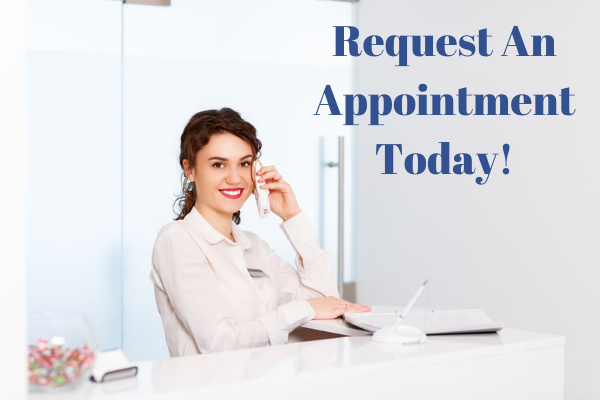Allergist Specialist/Doctor: What do they do? When should I see one?
May 6th, 2022 | 3 min. read


If you are constantly struggling with a runny nose, itchy skin, or watery eyes, you might be having allergy symptoms. Your allergy symptoms can be due to exposure to allergens. Unlike a virus or bacterial infection, it is essential to determine the allergen that triggers your allergy symptoms to get the best treatment.
To determine the cause of your allergy and the allergen behind it, you need to see an allergist.
What is an Allergist?
An allergist is a specialist who treats allergies and other immune problems. You can have an allergy if your immune system gets triggered by external substances called allergens. Allergens can include dust mites, pollens, pets, certain foods, and medicines.
An allergist is a specialist who determines the type of allergen that is causing your allergy and can help you take measures to safeguard against your symptoms.
To become an allergist, one has to earn a medical degree followed by three years of residency training in internal medicine or pediatrics. In addition, they have to complete another 2 to 3 years of specialized study in allergy/immunology to become a qualified allergist, certified by the American Board of Allergy and Immunology.
What Does an Allergist Do?
Allergists are physicians qualified to diagnose and treat various types of allergies and other conditions that affect the immune system, like hay fever, eczema, asthma, food allergies, and immune deficiencies.
They have undergone rigorous training in the science of allergy and immunology to determine the allergens causing your allergy symptoms and treat them effectively.
On visiting an allergist, they would run various tests to determine the particular allergen triggering your immune system. Next, they would find out the severity of the symptoms and form a plan to treat them effectively. Treatment might include medication or advice to stay away from allergens as much as possible.
interested in getting an appointment with one of our Allergists at Houston ENT and allergy?
When Should I See an Allergist?
An allergist can help both you and your children, especially as allergies tend to run in families. You can visit an allergist if:
- You have a persistent cough, sneezing, itchy eyes, head or nasal congestion, or sinus infection that does not clear out naturally.
- You are experiencing any form of allergies, including hay fever.
- Your allergy or asthma symptoms are affecting your day-to-day life.
- Your allergy symptoms, including asthma attacks, are not controlled by over-the-counter medicines and antihistamines.
- You often struggle with breathlessness or have difficulty breathing normally.
- You have been diagnosed with asthma before, and your asthma symptoms worsen even despite taking medication.
Do I Need a Referral for an Appointment With an Allergist?
Your primary care practitioner is often the first person you visit when you have a health concern. Although your physician is well equipped to provide care for all of your problems, it would be best to see a specialist to treat an allergy or immunological disorder.
If you have symptoms of an allergy, your physician can refer you to an allergist who can properly diagnose and treat your allergy symptoms.
It depends on the plan, though most PPO insurance plans do not require a referral and you can contact the allergist's office directly to schedule your appointment.
What to Expect at an Allergist Appointment
On your first allergist appointment, you might expect the following steps towards the treatment of your allergy symptoms:
Initial Consult:
The allergist will talk with you on your first visit to learn more about the allergy symptoms you are experiencing. If you have been referred, they will check your medical history to know more about your overall health conditions. You can also discuss your family medical history if allergies run in your family.
Questions your doctor might ask before starting treatment:
To diagnose and treat your allergy, your doctor may ask questions about your allergy symptoms, the duration and time of year when they occur, how long they last, and details of any medications you use to treat them.
Allergy Testing:
Your doctor can conduct several allergy tests to identify the allergens that trigger your symptoms and determine the type of treatment to follow.
The tests might include:
- Skin Tests: Your doctor will use a thin needle to prick the skin on your back or forearm with small amounts of different allergens to test your reaction. Skin tests are typically done for airborne allergies, food allergies, and penicillin allergies.
- Blood Tests: Blood tests can screen for allergies such as dust mites, molds, pet dander, pollen and foods by checking for IgE antibodies present in your blood.
- Patch Tests: This test identifies triggers for allergic contact dermatitis. Here, the doctor places stickers on your back that contain various allergens. You need to leave the patches on and revisit your doctor at 48 and 96 hours after the test is placed. Your doctor would remove the patches to determine your skin reaction to the allergen.
- Pulmonary Function Tests: They are noninvasive tests to see how your lungs are working. Pulmonary function tests can help diagnose and determine the severity of your asthma.
Based on your allergy testing results, your doctor might recommend:
- Allergy Shots: These can help your body get used to the allergens that are triggering your allergy symptoms. Also known as immunotherapy, allergy shots are often prescribed if you suffer from allergy symptoms for three or more months in a year, and medicines do not provide enough relief.
- Prescription medicines: Your provider can prescribe certain prescription medicines to help treat your allergy symptoms.
- Avoiding allergy triggers: The doctor can advise you on how to minimize exposure to allergens such as dust mites or pollens that can trigger your symptoms.
Follow-up:
After getting treatment, you might have to visit the specialist a few times a year to follow up on your allergy treatment to ensure the allergy symptoms are kept in check.
If you have allergy symptoms, the best way to get the most effective treatment is to visit an allergist/immunologist and take steps to avoid the allergens that have triggered your allergy.
Contact Houston ENT & Allergy to set up an appointment to see an allergist or call us today at 281-649-7000.
